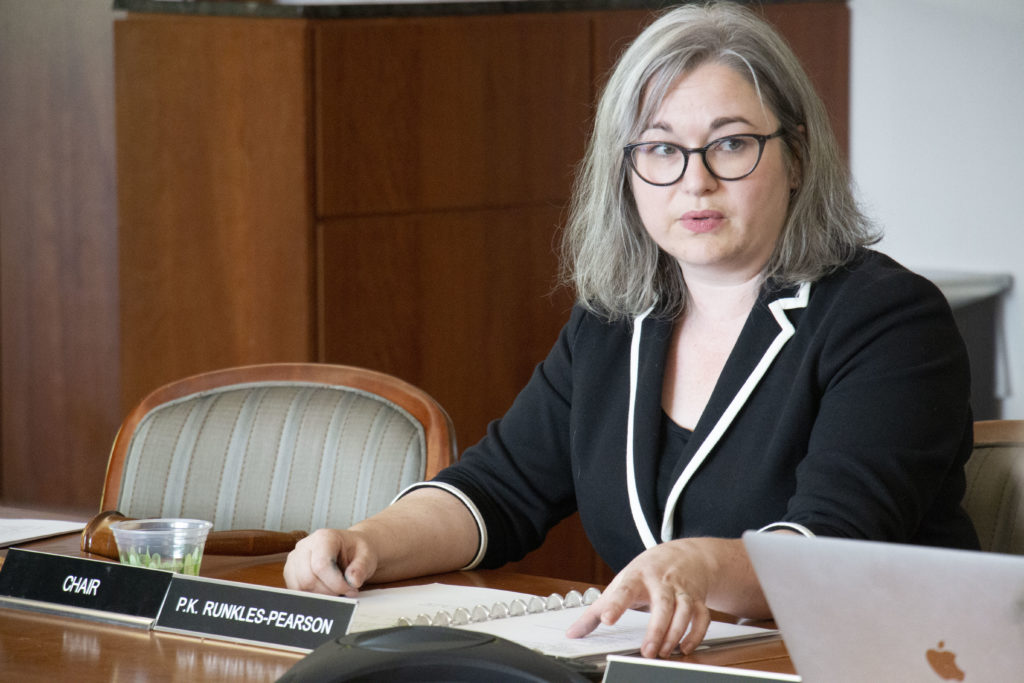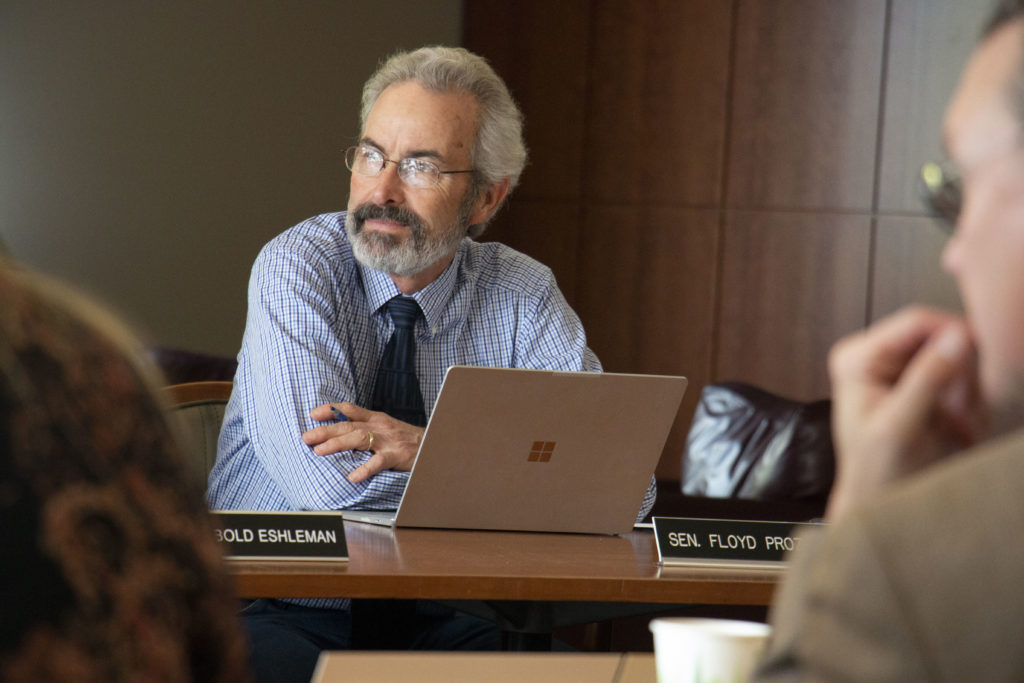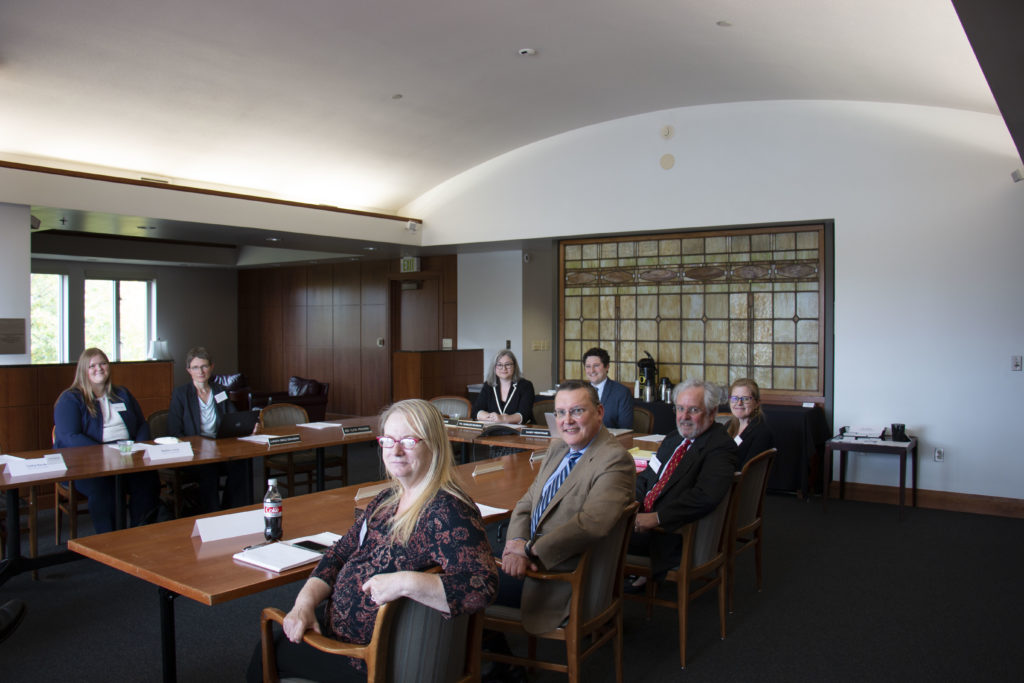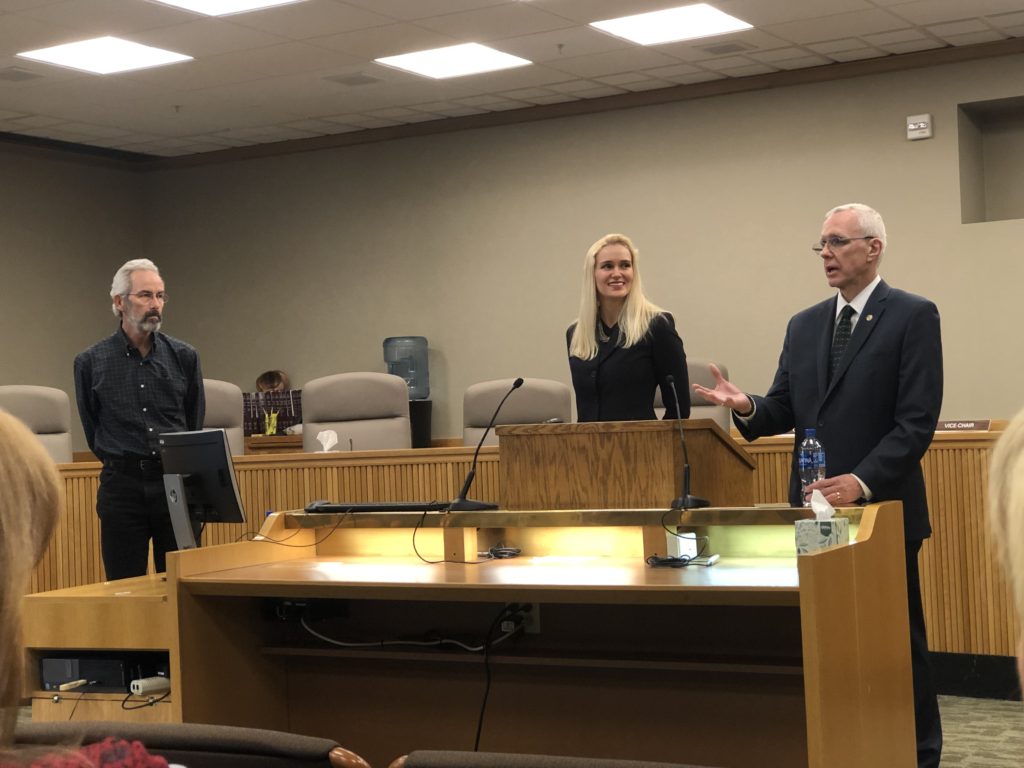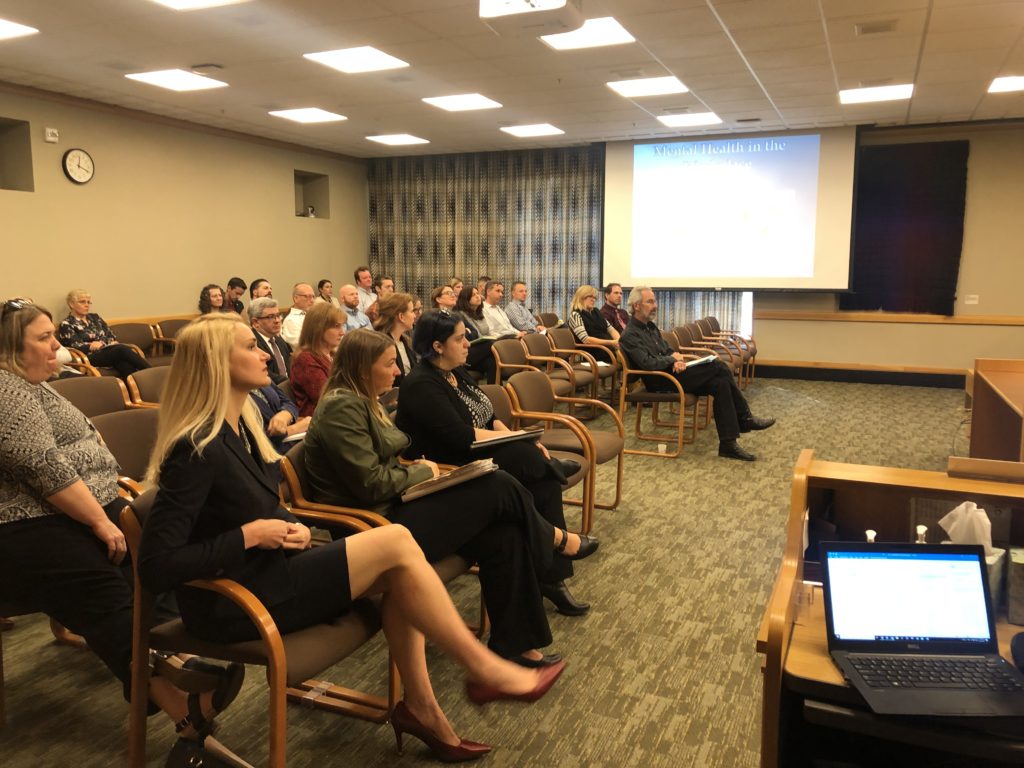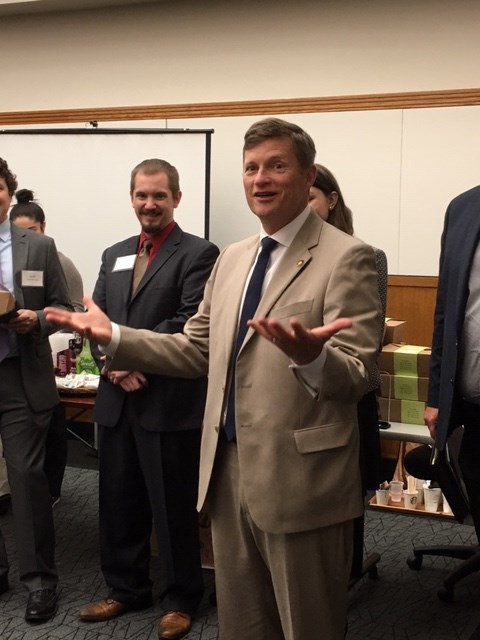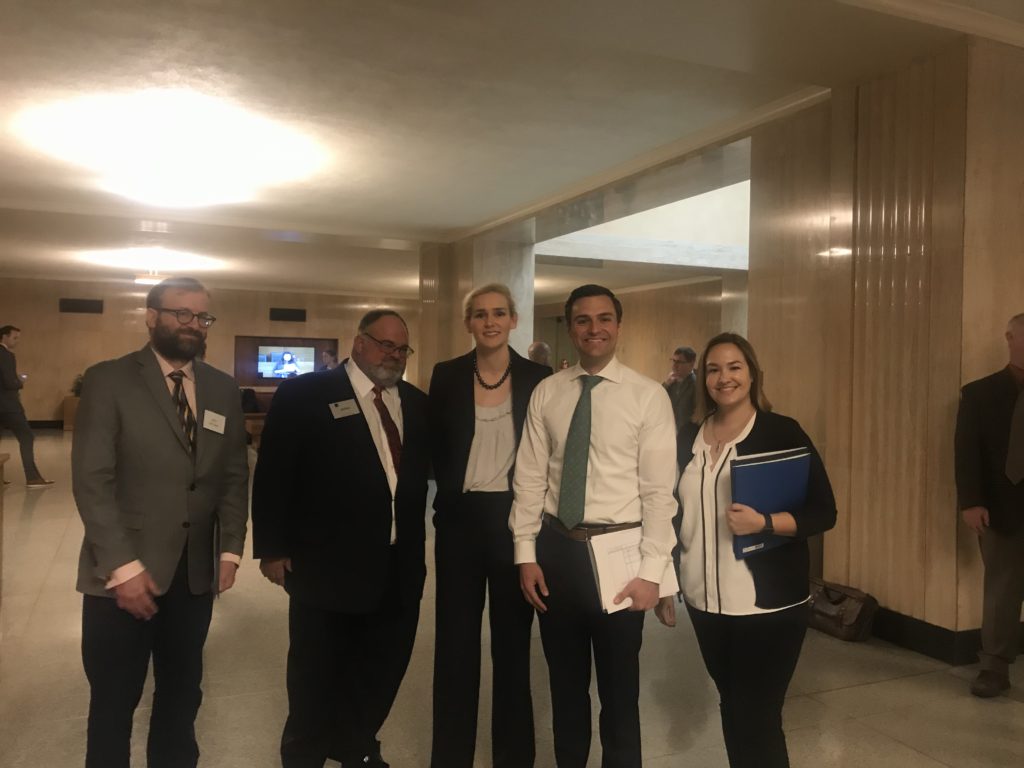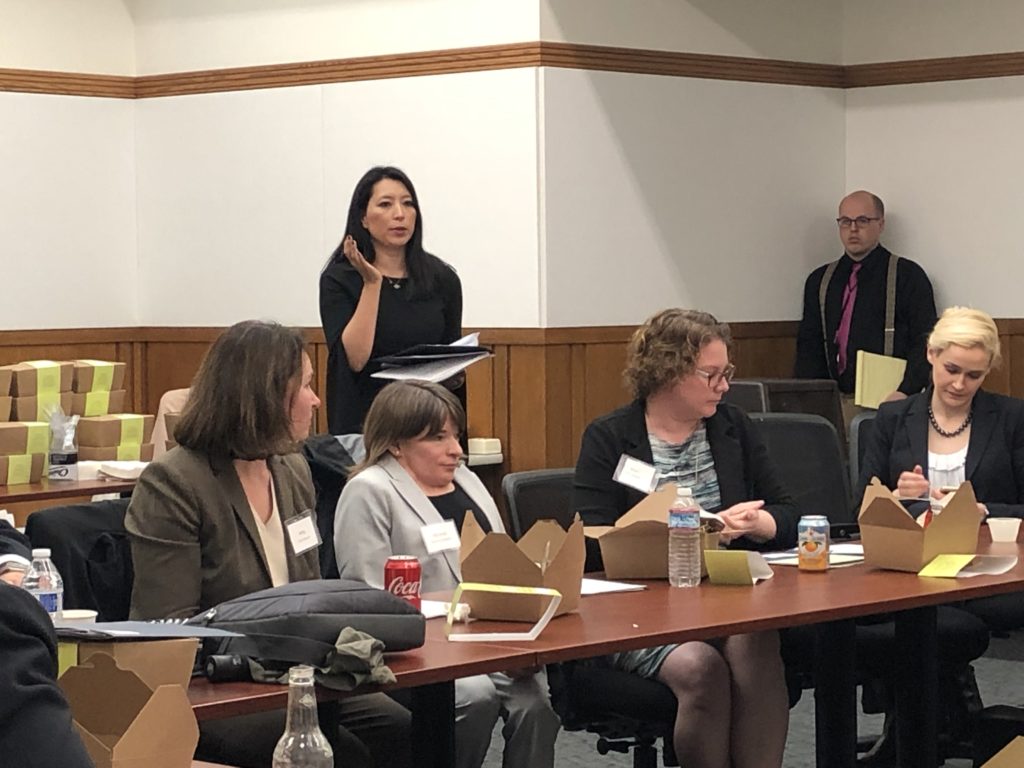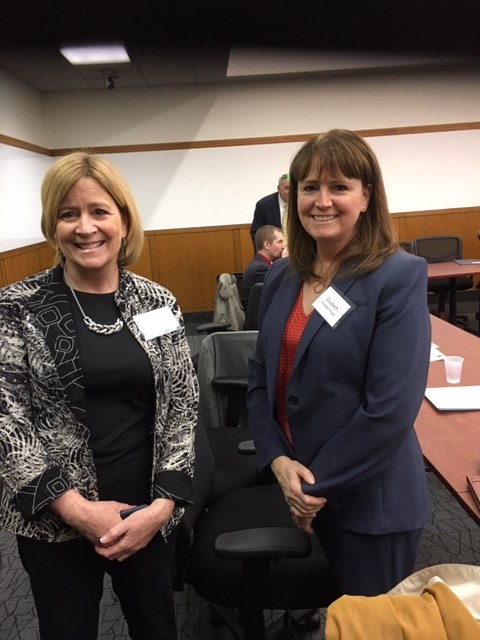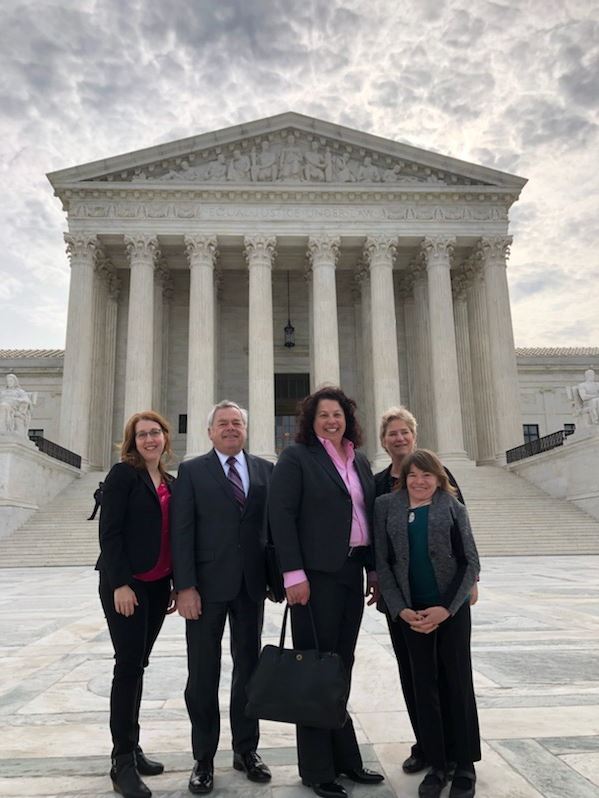Table of Contents
-
- State Senator Cliff Bentz Steps Down to Run for Congress
- Lawyers at the Crossroads: Legal Ethics CLE at the Capitol
- How to Report MCLE Credit to the Oregon State Bar
- NextGen Case Management/Electronic Case Files (CM/ECF) System Goes Live January 21, 2020
- Proposed and Out-of-Cycle Uniform Trial Court Rules (UTCR) Changes Published for Public Comment
State Senator Cliff Bentz Steps Down to Run for Congress
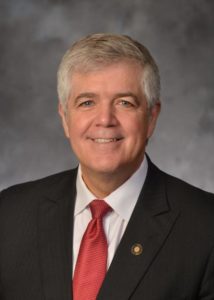
During November Legislative Days, State Senator Cliff Bentz (R-Ontario) announced that he would be stepping down as of January 2, 2020, to run for Representative Greg Walden’s Congressional seat (Oregon’s Second District).
Senator Bentz joined the Oregon House of Representatives in 2008. After five terms in the House, he was appointed to the Oregon Senate in 2018 to complete the term of former Senator Ted Ferrolli. During Senator Bentz’s time in the legislature, he also maintained an active practice with Yturri Rose LLP in Ontario, with a focus on agricultural, water, and real property law.
While in the legislature, Senator Bentz worked on a number of issues important to the Bar and, most recently, served on the Senate Judiciary Committee. During the 2019 legislative session, Senator Bentz carried HB 2460, a bill from the Elder Law Section, and SB 360, a bill from the Nonprofit Organizations Law Section.
Former State Senator Jason Atkinson, former State Representative Knute Buehler, David Campbell, Kenneth Medenbach, Mark Roberts and Jeff Smith are also running in the Republican Primary. The Democratic primary contenders are John Holm, Raz Mason, and Isabella Tibbetts. The primary election will be held in May 2020.
Lawyers at the Crossroads: Legal Ethics CLE at the Capitol
On December 6, 2019, the House and Senate Interim Judiciary Committees, in conjunction with the Oregon State Bar, hosted their final CLE in the Capitol for 2019. This CLE, presented by Dan Gilbert from the Oregon Legislature’s Office of Legislative Counsel and Amber Hollister, General Counsel for the Oregon State Bar, focused on the intersection of statutory ethics rules (ORS Chapter 244) and the Oregon Rules of Professional Conduct. Thank you to Senator Floyd Prozanski (D-Eugene), chair of the Judiciary Committee, for hosting this month’s CLE.
The one-hour CLE was certified for an ethics credit for Oregon lawyers. In addition, the CLE was recorded and is available for playback on the legislature’s website under “News Conferences and Non-Legislative Video.” To find the CLE, go to December 6, 2019, and look for the title of the CLE.
Additional CLEs will be offered in 2020. If you would like more information on future CLEs, please email Amy Zubko at [email protected]. Thank you to everyone who attended, participated, and provided feedback.
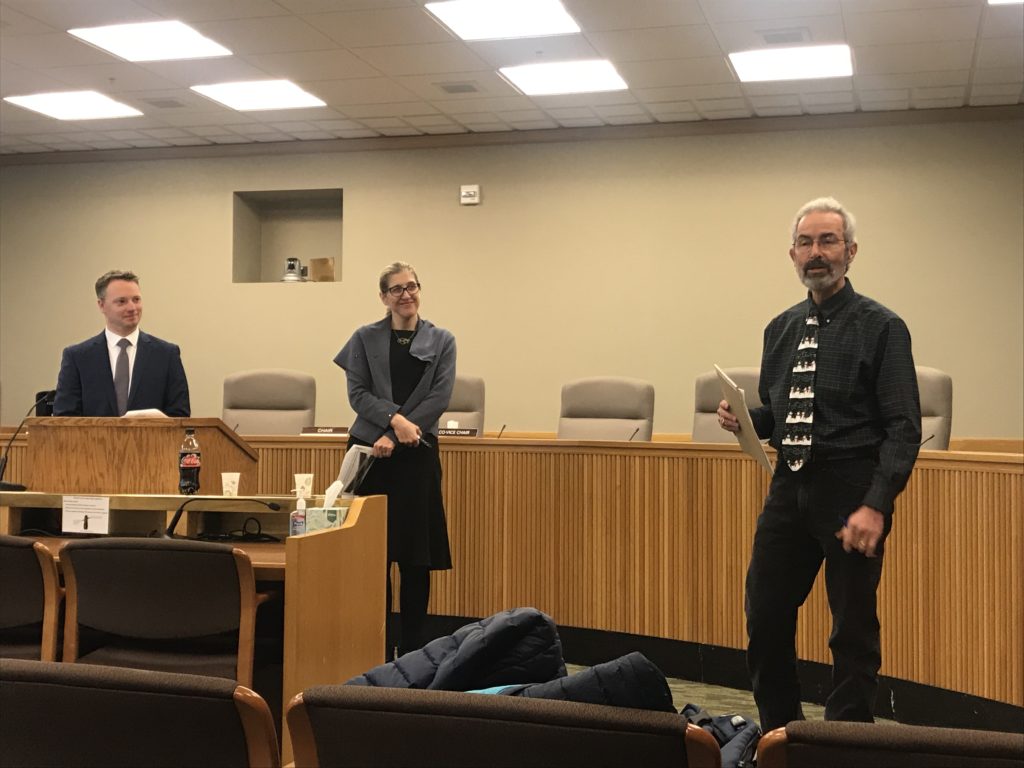
(From L: Dan Gilbert, Office of Legislative Counsel, Amber Hollister, General Counsel Oregon State Bar, and Senator Floyd Prozanski (D- Eugene)).
How to Report MCLE Credit to the Oregon State Bar
This fall the Oregon State Bar updated the MCLE reporting process. If you attended or watched the CLEs at the Capitol, or participated in any other CLE for credit, the reporting process is below. If any questions arise, please contact the MCLE Department at the Oregon State Bar at [email protected].
Each of the CLEs listed below are available for playback on the legislature’s website under “News Conferences and Non-Legislative Video.”
To find the CLE in the MCLE database, follow the instructions below.
2019 CLEs at the Capitol
Mental Health in the Workplace
Monday, October 14, 2019
noon – 1:00 p.m.
Oregon State Capitol, Salem, Oregon
Program number: 60221
Mandatory Abuse Reporting
Tuesday, November 19, 2019
noon – 1:00 p.m.
Oregon State Capitol, Salem, Oregon
Program number: 61891
Lawyers at the Crossroads: Government Ethics and the Rules of Professional Conduct
Friday, December 6, 2019
noon – 1:00 p.m.
Oregon State Capitol, Salem, Oregon
Program number: 62700
MCLE Reporting Process
You may add a CLE program to your MCLE transcript by following these steps:
1. Log on to your Member Dashboard at hello.osbar.org
2. Go to the MCLE Reporting
3. Click Add Activity to Transcript
4. Click Accredited Group Course
5. Program Database Search Options (select one of the following)
-
-
- Event ID
i. Type in program ID # (replaces program number in old system)
ii. Program automatically pops up in Search Results
iii. Go to #6 below - Event Sponsor
i. Type in sponsor name (spelled out / no acronyms)
ii. Date range of program (optional)
iii. Event Type (optional)
iv. Credit type (optional)
v. Go to #6 below - Event Title
i. Type in program number, if available; title will auto populate – click on
title to fill field
ii. Leave all other fields blank
iii. Go to #6 below - Date and City (for live events)
i. Type in date of the event
ii. Type in city of the event
iii. Go to #6 below
- Event ID
-
6. Scroll down and click on Search Events
7. Double click on the course (LIVE version or RECORDED version)
8. Answer the question regarding if you completed all or part of the program.
9. Add the program to your transcript.
NextGen Case Management/Electronic Case Files (CM/ECF) System Goes Live January 21, 2020
The U.S. District Court for the District of Oregon will implement CM/ECF NextGen on January 21, 2020. Please review the NextGen Instructions about how to ensure that you will be able to e-file when NextGen is implemented.
For those with a PACER account that was established in mid-2014 or before, the attorney will need to upgrade the PACER account. In addition, all users will have to make sure they know their CM/ECF username and password and keep them handy, so that they can link their PACER and CM/ECF accounts in order to e-file in Oregon federal district court on or after January 21.
Essentially, the changes to CM/ECF will allow users to have a single user ID and password for both PACER and CM/ECF, and new applicants to the District of Oregon Bar will submit their applications via PACER. Otherwise, the user experience for e-filing will stay the same. Even so, it is important to review the steps in the document linked above to avoid any interruptions to your ability to e-file. For more information, please navigate to ord.uscourts.gov/nextgen.
Proposed and Out-of-Cycle Uniform Trial Court Rules (UTCR) Changes Published for Public Comment
On October 18, 2019, the Uniform Trial Court Rules Committee made recommendations to the Oregon Supreme Court on proposed changes to the Uniform Trial Court Rules. Some of these proposed changes, and one other change, were adopted out-of-cycle with various effective dates. In addition, the committee also recommended disapproval of some changes.
The committee encourages you to submit comments on these proposals, the recommendations (whether for approval or disapproval), and any other action taken by the committee or the Chief Justice. To be considered by the committee, public comment must be received by the UTCR Reporter by 5:00 p.m. on March 20, 2020.
A complete list with detailed explanations as well as instructions on how to submit comments is posted on the Oregon Judicial Department’s website at https://www.courts.oregon.gov/programs/utcr/Documents/19eBCM032jm_Notice-Seeking-Public-Comment-2020-Proposed-UTCR-Changes.pdf.
Archives
Thank you for reading the Oregon State Bar’s CAPITOL INSIDER.
The archives are available here.
2019 Public Affairs Committee Members
Eric Foster, Chair
Eddie Medina, Vice Chair
Whitney Boise
John Bachofner
Kate Denning
Kamron Graham
Bik-Na Han
Michael Rondeau
Public Affairs Department
Susan Grabe, Public Affairs Director
Amy Zubko, Public Affairs Legislative Attorney
Matt Shields, Public Affairs Staff Attorney
Kellie Baumann, Public Affairs Assistant

